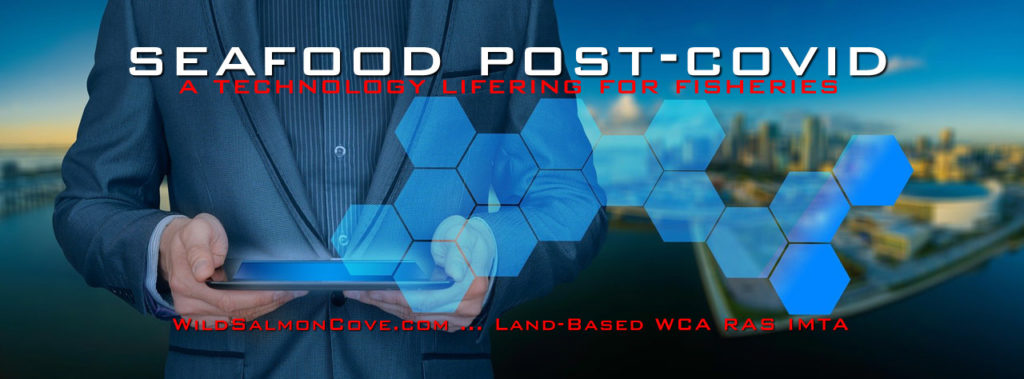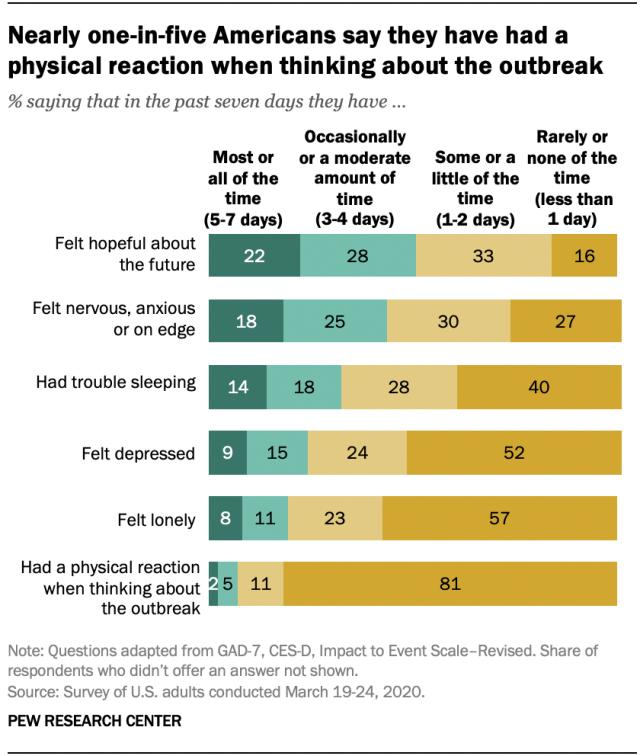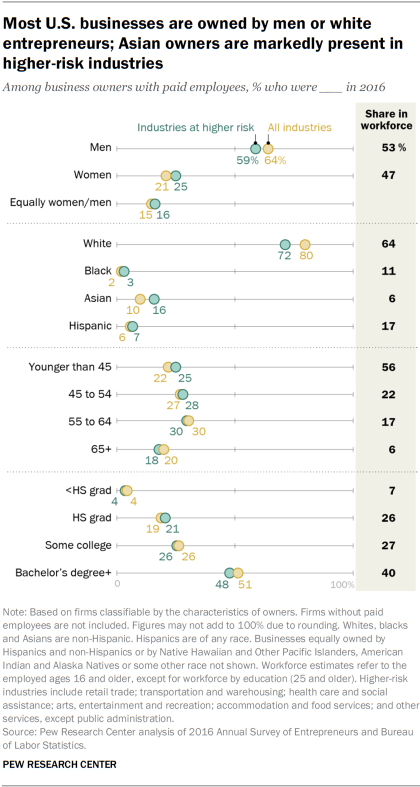DEPOPULATING for PROFIT

Covid culling is increasing worldwide, and some of it … is purely for profit.
Pigs and chickens are being slaughtered and buried in mass graves or chopped up for animal feed or fertilizer because farmers can’t afford to buy feed. It’s a tragedy that’s both reluctantly accepted and morally unsettling. Sometimes though, culling occurs simply because animals eating … eat into a farm’s profit. Culling to balance your bottom line is common for farmers and producers, but mass culling for profit is alarming for consumers. It sends a message that the food industry considers pigs, chickens, and even fish, little more than feedlot pawns.
As a result of Covid-19 disrupting distribution and the public’s access to food, consumers are intently watching what our industry is doing behind the scenes … especially those off work who now spend all of their time on news COMMENT sections.
Slaughter for profit is not like dumping milk or eggs.
At a time when consumers are struggling to navigate their way through a broken food supply chain, producers are dumping meat and vegetables instead of figuring out how to distribute it.
Kudos to fish farms for redistributing salmon to food banks. It’s a step in the right direction and a great model for other meat industries to follow!
If there was ever a time to reinvent our food production system and supply chain … it is now.
Covid-19 is already spawning radical supply chain innovation.
The move to digital direct marketing is critical for B2C and B2B, and if you want to tap into the NEW independant global seafood market, you’ll need to be able to fluently manage data.
While food systems are down globally, it’s a good time for your company to get technical and take a serious look at small enterprise CRM and distribution networks set up to manage BIG DATA.
As a seafood producer you might soon have to decide, on-the-fly whether the Canadian seafood you market will be sold to China or United States. For strategic reasons, you might not want to sell to both, or might not be able to because of new regulations. Trump or Jinping could also institute covert sanctions against seafood companies for selling to a country not on their respective approval lists. Transparency and traceability are about to go into hyperdrive, which means speed will be even more critical.
Technology helps companies move quickly
Covid could also spawn a 2020 Cold War that could turn smoked BC salmon into Cuban Cigar deja vu!
It might turn out that you’re best strategy going forward Post-Covid is to focus on sales within Canada and other smaller countries. It might not be a strategy for everyone, but those who know how to make it work will carve out a niche, especially if you produce premium quality wild capture RAS IMTA finfish like salmon, sablefish, or halibut, and other seafood like mussels, clams, and maybe even seaweed. Fish raised in a clean water RAS environment free of mercury, PCBs, and microplastics will always find premium buyers.
The cost of food in restaurants in 2020 is about to skyrocket. If customers are forced to pay covid premiums, they will demand extraordinary quality, and purity can be an advantageous differentiating factor. Leveraging trends tied to market statistics will help keep you competitive. Going forward, you’ll need to know your numbers and how to interpret data.
For a point of reference; China has 100 billionaires who are parliamentary members of the Communist Party of China. Think about that for a second, and then do a quick Google search to see how many billionaires Canada has in our parliament. Turns out it’s zero. I know from forty years of hands on global marketing experience that Canada doesn’t have as much influence in the world as most Canadian entrepreneurs think. We have to work hard and negotiate aggressively for everything we receive. There is no doubt that patriotism is alive and healthy North of the 49th, but historically for Canadians, consumers make purchase decisions mostly based on the cheapest product on store shelves. Patriotism isn’t even a close second at checkout. Maybe it will be different this time … but I doubt it.
International politics is about to rock everyone’s boats, and the better we are at diplomacy, the better our chance of surviving and thriving.
Some believe Prime Minster Trudeau should get tough with China.
Based on my experience though, it looks to me like Trudeau’s Team is doing a solid job protecting and negotiating for Canada’s advantage. Timing is everything. I like that our government is patient and that our Fisheries and Oceans Minister Bernadette Jordan is also taking a strong lead.
Angry consumers are, nonetheless, indicating through threats of BOYCOTT that they are NOT going to support companies and countries that undermine Canada. Today, using social media, consumers are able to see where a company’s loyalties lie. How long Canadian anger will last is anyone’s guess, but so far, threats of boycott are growing. The tipping point will depend on how well our government manages the international debate. Information and education will be key.
Bloomberg Video Report: CANADIANS THREATEN BOYCOTT
It’s unfortunate, but the seafood industry is one of the slowest sectors in Canada to embrace advanced digital marketing and social media. Although a few smaller seafood companies like Skipper Otto jumped on it early and do exceedingly well.
Covid-19 however, is starting to push some companies to develop a more professional and efficient online and eCommerce presence, and the trend is only going to grow.
To make the Covid challenge even more difficult for seafood, the pandemic is accelerating the rise of FAUX meat. It’s steadily growing and chipping away to become another product in direct competition with real seafood.
The other reality today is that wild salmon is falling out of favour because consumers are genuinely concerned about overfishing. The sustainability conundrum opens the door to sci-fi like solutions we watched on Star Trek thirty years ago – meal in a pill! …yum.
Adding insult to injury, wild and farmed salmon are insanely expensive!
Relatively speaking, cost is the main reason seafood has such small market share compared to poultry, pork and beef. The irony is that red meat takes at least eight times more energy than fish to produce, yet beef still leads the pack in a market that claims they want to protect the environment.
We obviously need better education, but that’s not going to happen unless governments RADICALLY change how they manage grants. It’s a critical challenge that prevents small and medium seafood companies from growing. The current system works GREAT for big companies that have large accounting teams to manage the complexity, but it automatically shuts everyone else out. There are a few workarounds, but unless you’re in the loop, you’ll never figure it out on your own because the system is cleverly designed to keep you at bay.
Seafood lovers are conflicted because even though they want to protect wild salmon species, they don’t want the perceived cure – open-net pen fish farming, to be worse than the disease – overfishing. It’s why LAND-BASED fish farming appeals to younger demographics who vote with their wallets. Land-based salmon farming will truly take pressure off of wild salmon stocks, and it will do so while being carbon neutral and ocean friendly – something open-net pen fish farmers and wild fishers will never be able to accomplish given the current system.
Most small seafood companies lack global vision and commitment. Take a quick look at the short video below of Dr. Bonnie Henry, BC’s provincial Health Officer, and think about where you and your company fit into the global corona virus equation. Compare how Dr. Henry has assessed and approached the Covid challenge compared to Donald Trump or Xi Jinping. Dr. Henry has done a great job for British Columbia and has a better sense than most in Canada of the severe health challenges we could experience if we don’t continue to manage Covid responsibly.
At the end of May 2020, we are not out of the woods – far from it!
Average people every day are losing jobs and having retirement funds wiped out. If isolation and lockdown continue for even two more months, those in the bottom quarter of the economic sector, statistically 25% of the population, will be destitute and homeless. To date in Canada, it’s only been about ninety days sheltering in place, and people are already starting to panic and act-out. Something that few are discussing openly, is the residual psychological effect that businesses and consumers will suffer.
Mental health practitioners are warning governments to prepare for psychological repercussions of Covid-19.
Moderately comfortable people, including most business owners are not too concerned yet because they have more of an economic buffer than those who are poor. At this point the moderates do NOT feel like they will lose their businesses or homes and starve, but that could rapidly change. News media focus primarily on the most needy because marginalised people need immediate help, plus, it generates controversial headlines. Covid however, is also creeping towards undermining middle-income earners, and when this large group hits the red panic button all hell will break loose, especially if desperate companies continue to slaughter and dump even more animals for profit.
Humans have a short memory – social media doesn’t.
Covid or not, activists are paying attention and making lists for public consumption in the future.
Personal responsibility and transparency have become Covid mantras for politicians, and it will soon be the same for executives. What you do today will resonate forever online because someone is always watching. You can run, but you can’t hide. It’s better to figure out the new system than it will be to assume it’s “business as usual.” The secret to success is to be adaptable!
COVID BUSINESS FACTS
If you’re the type who needs proven statistics to help you make good business decisions, and who doesn’t these days, take a look at some of the numbers below from Pew Research.
Pew is a highly respected, non-profit, non-partisan, non-advocacy American public-polling FACT TANK. They collect data that many news companies publish. The difference is that Pew reports pure numbers, whereas news media covertly insert their bias. Pew primarily polls Americans, but considering our neighboring proximity, many of the results also reflect Canada views – interpolate as necessary.
If you don’t have Pew Research on your list of trusted sources you’re missing half of the conversation.
Here’s a quick overview; Keep in mind that Pew polls average citizens, which means that the numbers simply indicate what people think, and not necessarily what is good for the world or for your business. Knowing what your market thinks makes it easier to serve their expectations. You have to interpret these numbers and not take them at face value.

A few more COVID-19 FACTS from PEW
How we TRUST during Covid
Young Workers Hardest Hit
Partisan Reactions re Covid
COVID RISK to Businesses
Political Armwrestling
It’s impossible for anyone to accurately predict what will happen in Asia because the political unrest in China is ramping up chaotically. The world is angry. Some westerners believe that IF countries stick together and work collectively, we might have an impact on communist China. I wouldn’t hold my breath though because most world leaders won’t stand in solidarity. Most countries are already quietly scrambling to independently make new seafood deals with China, the second most powerful global economy next to the U.S. The gamble here is about which market will grow faster post-Covid, China, or America, and which will require more seafood imports. When you throw new tariffs into the equation the choice becomes even more difficult.
China has great incentive to offer deals to smaller countries because global polarization gives the CPC leverage against the United States. Prime Minister Trudeau undoubtedly knows this, and I suspect he’s biding his time waiting for post-covid markets to shake out a bit. His first responsibility was to the health of Canadian citizens. His focus in May 2020 is now shifting to our economy.
President Trump has taken an opposite tack and has always been obsessed with the economy.
The U.S. president is also threatening to ignore China, but we know from his past actions it’s mostly bluff. Without Chinese factories, America will waste even faster than it is now.
If Trudeau plays his cards right, he can place Canada in a seafood bidding war between China and the U.S., but is that what Canadians want politically? We’ll soon see.
It took decades to build the Asia America global manufacturing coalition, and it will take as long to shift it back to western shores, if it’s even possible. Trump wants a struggling America to be great again, however, what he’s not making clear is that the transition could take decades.
In our fast food world, voters want it now, but it’s delusional though to think major change will happen overnight. In a generation maybe, although it will take incredible risk, investment, and fortitude to turn the tide.
The other wild card is whether Trump will be re-elected – he surprised us once.
The best business advice anyone can give today is to be prepared for all eventualities. Hedge your bets, don’t be too rigid, and make sure you can easily move in any direction political winds blow.
Inflexible Albertan retailers were broadsided recently when the provincial government changed plans at the last minute regarding the opening of restaurants. Business owners didn’t listen carefully and pre-maturely invested in perishable supplies that had to be scrapped when the government pulled the plug at the eleventh hour. Hopefully, most of it went into the freezer and not as much to waste as first feared.
As I mentioned earlier, on the global front; Canadians are concerned that Prime Minister Trudeau is too soft on China.
Based on my experience managing large audiences, and politics aside, from the beginning Trudeau did what needed to be done, and in the order necessary to save Canadian lives balanced against our economy.
News media is giving this topic exposure because it creates exciting headlines.
To put things in perspective though regarding the PM’s INFLUENCE over China;
Canada has 35 million people – 0.48% of the world population.
China has 1,439,323,776 people (almost 1.5 billion) – 18.47% of the world population.
The USA has 330,760,468 people – 4.25% of the world population.
China, the WORLD FACTORY, has at least ten times 10X more manufacturing facilities than the U.S. – including companies like Apple, Samsung, and Nokia 5G, heavyweights to be sure.
One big mistake westerners make is to think that China only produces low quality items. The reality however is quite different. Chinese factories also manufacture highly advanced technology, although you’d never know it by listening to western news media. Recently, because inflammatory headlines sell, news media have been heavily reporting that China produces inferior products – specifically PPE items like N95 masks and ventilators.
If you don’t understand how news media works, read “When the Headline Is YOU” by Jeff Ansell. In the interest of transparency and full disclosure, I worked with Jeff for almost two decades as a writer and an advisor, and helped him promote his popular book.
The bottom line is that how we market seafood is about to dramatically change for the better. Sophisticated technology like blockchain on the distributed web will allow us more transparency and streamlined traceability. Everyone in the supply chain, from fisher, fish farmers, processors, and consumers will know exactly where each fish is located in the chain at any time of the day or night. Transparency and traceability are the two factors that create the most chaos in fisheries. Once these networks are in place we can focus more intently on other challenges like overfishing, and how to raise safer fish in climate friendly environments.
If you’re an open-net pen fish farmer, and you’re angry about the transition to land-based salmon farming, you might want to rethink your position in light of the challenges regarding Covid-19. You might also be mistakenly thinking the feds are going to scrap land-based fish farming plans. I doubt very much that the health of oceans and wild fish stocks are off the table. Canada’s open-net pen salmon farmers for the moment have an edge in the move to land-based farming because you already kind of know how to do it. You also need to know though that there are innovators and entrepreneurs working hard to develop in Canada what is already happening in the U.S. If you don’t get on board immediately, you’ll be left behind.
How do I know? … I’ve been developing multi-million dollar RAS IMTA systems and marketing strategies designed to reinvent fisheries and put Canada on the LAND-BASED fish farming map.
The first step is always the toughest.
It’s much harder to CATCH-UP, than KEEP UP!
I’ve developed and promoted digital marketing and distribution strategies for the biggest and smallest companies in the Canadian seafood industry for over a decade.
Today, because of Covid, digital interest has exploded … mostly because we don’t have a choice. Progressive companies that want to survive, are already exploring a variety of very unique and creative online options.
Drop me a line if you have questions …

Maurice Cardinal has been a fisheries marketing and communications advisor and writer in British Columbia for almost a decade and has worked with leading organisations, NGOs, and governments in Canada and abroad.

